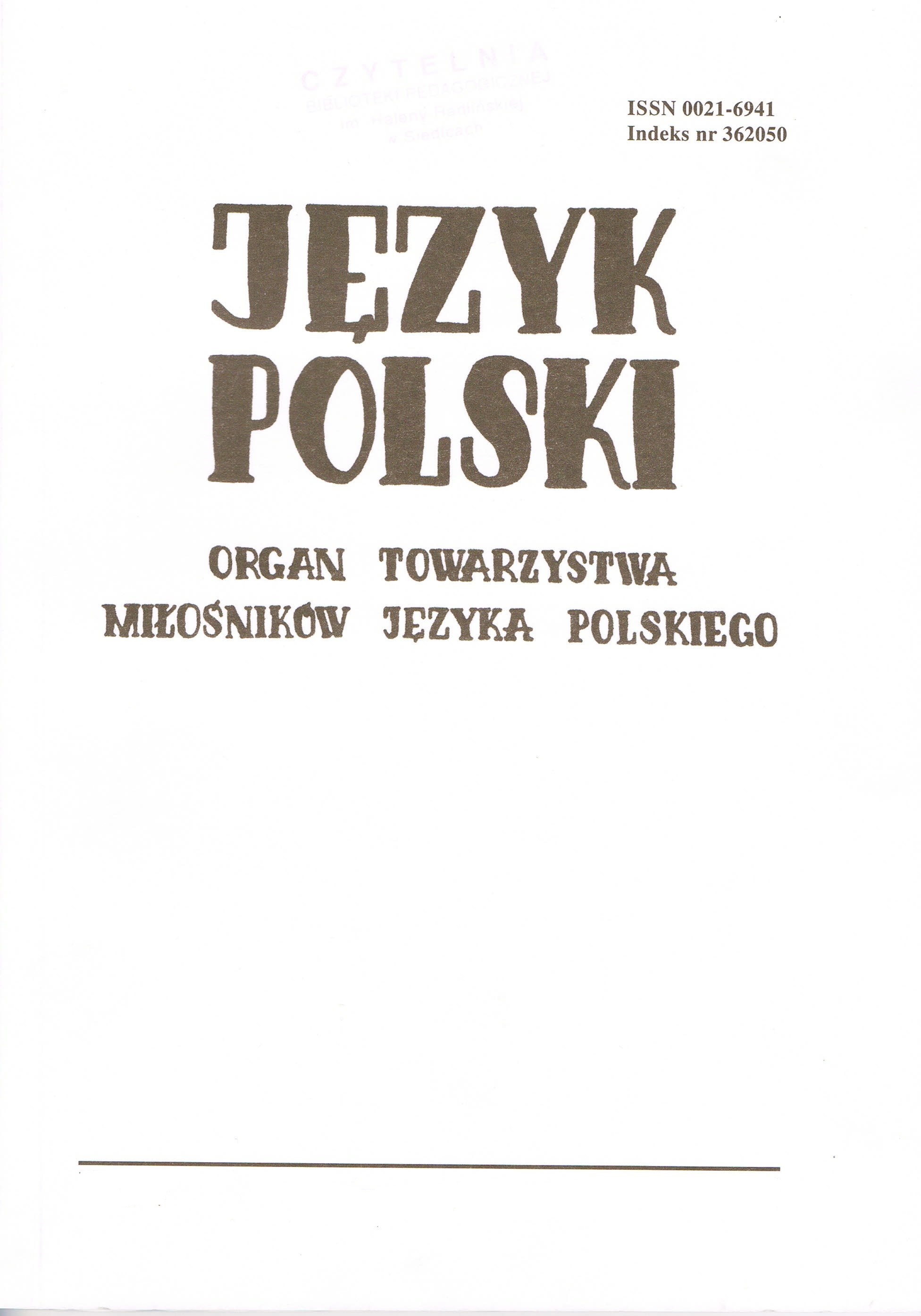Leksem "cnota" i leksemy pokrewne w języku polskim w ciągu wieków
Lexeme "cnota" (virtue) and affined ones in Polish over the centuries
Author(s): Beata Raszewska-ŻurekSubject(s): Language and Literature Studies
Published by: Towarzystwo Miłośników Języka Polskiego
Keywords: axiological vocabulary; language of values; diachronic studies; lexem cnota (virtue)
Summary/Abstract: This article describes semantic progress of the lexeme "cnota" in Polish since the beginning till now. The analysis was conducted on lexicographic definition of "cnota" and affined adjectives such as "cny", "cnotliwy", nouns like "cność", "cnotka" taken from historical and modern dictionaries of Polish language, the context describing "cnota" and other names of similar values. It will allow me to show the evolution of the lexeme "cnota" and differences in evaluation over six centuries. The historical meaning of "cnota" was strongly connected with the religious and social side of life and its position was high in the hierarchy of values. During the 17th and 18th centuries the meaning of cnota turned from religious toward secular but it preserved a high position resulting in social advantage. Since then the lexeme strongly evolved one of its meanings, connected with sexual purity and simultaneously losing the other, more general sense like 'ethic virtue', 'righteousness and nobility'. Its high position in the hierarchy of values during the centuries is declining today due to narrow meaning and cultural changes.
Journal: Język Polski
- Issue Year: 2012
- Issue No: 2
- Page Range: 113-125
- Page Count: 13
- Language: Polish

